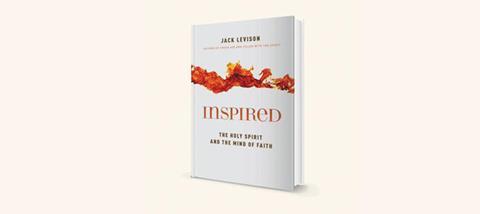
This refreshing and in places controversial scholarly book is arranged in three sections: the Spirit and the cultivation of virtue; putting ecstasy in its place; and the Spirit and the interpretation of scripture.
It’s the first section that many will find contentious, as Levison outlines his belief that the Old Testament descriptions of the Spirit’s work in Joseph, Bezalel (who was gifted for work on the tabernacle) and the prophet Daniel suggest that all people ‘have the Spirit’ but need to cultivate the Spirit if true virtue is to result. He isn’t denying the uniqueness of the Christian experience, but suggests a hard and fast split between humans with and without the Spirit is false.
I wasn’t at all convinced, but was glad that I persisted in reading, since the other two sections have some illuminating perspectives on the work of the Spirit – notably Paul’s reflections on his conversion, the way the apostles reasoned at the Council of Jerusalem and how the author of Hebrews interprets and applies Old Testament texts in his letter. In the concluding chapters the author invites others to debate and reflect on his views and do further research in the field.
It’s a challenging read in places, suiting the theologically educated who have their basic doctrine of the Spirit intact and are happy to imagine new approaches outside of their own framework. Whether you agree with his approach or not, it will certainly help you discern what you really believe the Spirit does, and be open to him doing it more.


























